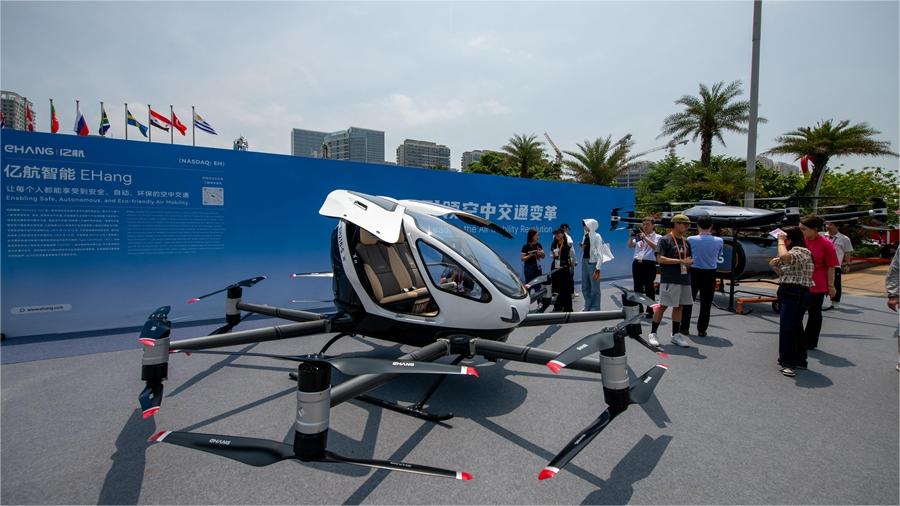AI redefining classroom learning in China
TIANJIN, April 16 (Xinhua) -- Artificial intelligence (AI) is becoming increasingly prevalent in primary and secondary school classrooms across China, providing a modern approach to education while fostering scientific thinking and innovative skills among students.
Huiwen Middle School in north China's Tianjin is one of the pioneers in the city to incorporate AI into education. It was named one of the 184 AI education bases by the Ministry of Education in February.
"Maintain your speed and avoid obstacles," said Ning Zhaohong, a technology project advisor and head of the school's innovation center, as he guided students during a robotics class.
The project began almost seven years ago. In 2017, the school formed a club called "Huimin Singularity" to enhance students' extracurricular experiences and provide opportunities for those interested in AI, Ning said.
"At the very beginning, as we were all newcomers to building, operating and programming robots, we heavily relied on self-study and research," Ning said. "Initially, most club members joined for robotic competitions."
During their spare time, students and teachers teamed up to travel with the robots to attend competitions. Although they initially faced challenges, they soon began winning championships.
After years of dedicated effort, the club gained popularity for its regular robot demonstrations and drone operations, attracting an increasing number of students to join.
In 2022, the school officially incorporated "Huiwen Singularity" as an after-school program, providing every student with a chance to participate. The school also launched technology innovation courses for students.
Ning witnessed the club's journey from a niche interest group to widespread student participation, from a single instructor to a cohesive team, and from basic tech exercises to comprehensive AI education.
"AI courses should be an essential element of education in primary and secondary schools," said Qu Wei, principal of the school, adding that students' learning about robots should not be limited to just understanding their capabilities in chess or assembly line work but they should also engage in basic programming to develop scientific thinking.
As hardware facilities improve and teachers and students gain a deeper understanding of AI, this technology has emerged as a popular and effective tool across various subjects in classrooms.
Before each class, the in-class "AI Assistant" can review the key points from the previous day and assess students' English reading. Physical education teachers use robots to provide real-time feedback and assistance in refining students' middle-distance running techniques.
From an "interest group" to the integration of AI into teaching, Huiwen Middle School's journey in AI education reflects the paths taken by many other primary and secondary schools across China.
In Beijing 101 Middle School, an AI-based listening and speaking system has been incorporated into English classes. Similarly, in Fujian, teachers use AI and big data technology to pique students' interest in learning.
"AI in classrooms has already initiated transformations for both students and teachers. In the future, we will continue to improve teachers' proficiency in using AI to enrich and refine related courses," Qu said.
Photos
Related Stories
Copyright © 2024 People's Daily Online. All Rights Reserved.









